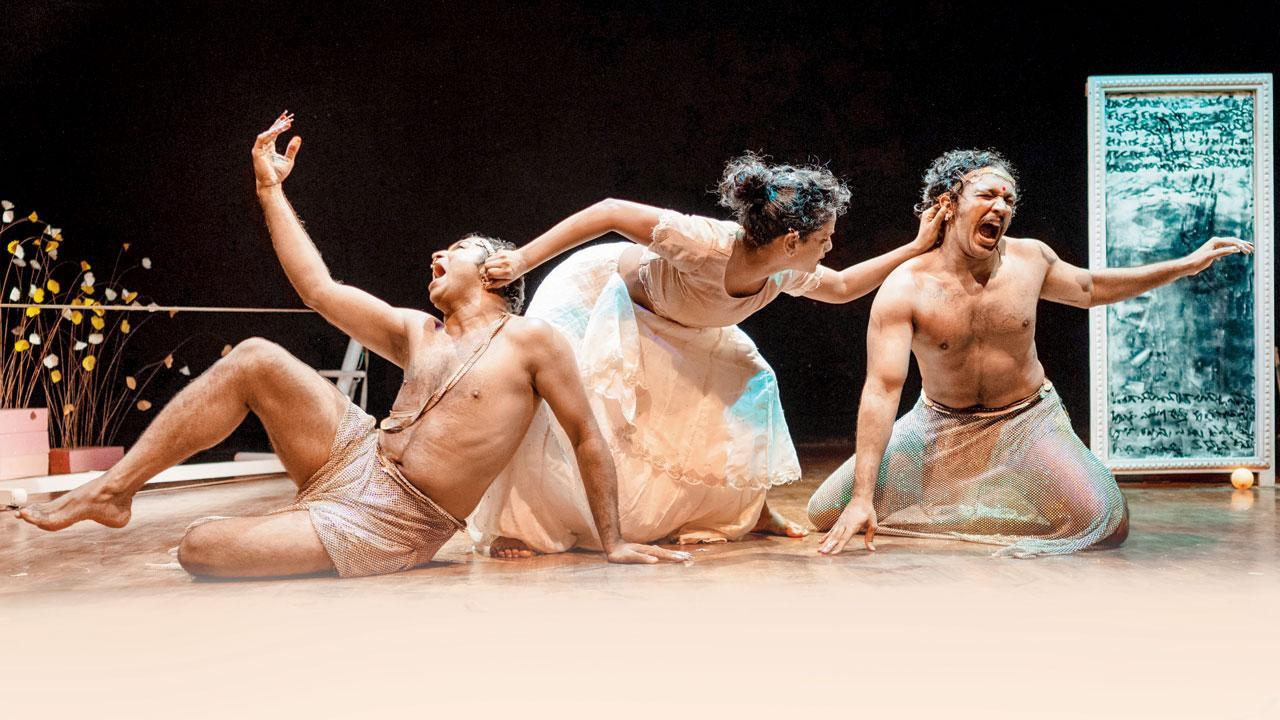Home / Mumbai-guide / Things To Do / Article /
This play set in Ayodhya explores the life of Lakshmana’s wife Urmila
Updated On: 06 January, 2024 08:10 AM IST | Mumbai | Suprita Mitter
Adishakti’s recent production explores an interesting narrative of what could have been if Lakshmana’s wife had protested against her husband’s command

A few moments from the play that show Urmila in an unconventional light
The last time we conversed with director Nimmy Raphel, she was presenting Bali, a retelling of the events that led up to the battle between Bali, the ruler of Kishkindha, and Ram, the king of Ayodhya, and eventually, the former’s death. This time, Adishakti, the Puducherry-based, contemporary theatre repertory, will present Urmila, a play about complex ethical and gender-related issues that have existed in our society throughout history. Set in Ayodhya and rooted in the Ramayana, it looks at the life of Lakshmana’s wife Urmila.
Epic tales
Clearly, lesser-known characters from the epic intrigue her. “We keep reading mythology, and then we sort of get caught up with the main characters. But there are other also equally compelling roles. I’m extremely interested in minor characters. Urmila has been on my mind for a long time,” says Raphel, who has also written the play.



